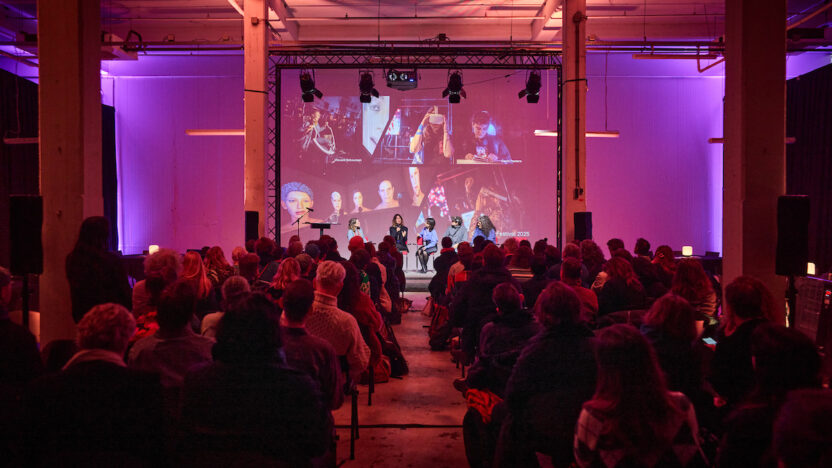“Our understanding of cinema is collective”: producer Carlos Pardo Ros on Last Night I Conquered the City of Thebes
“Our understanding of cinema is collective, with a less hierarchical approach. That’s why we look for spaces that correspond to our philosophy, and IFFR is one of them” said Rotterdam Lab graduate Carlos Pardo Ros, on presenting Last Night I Conquered the City of Thebes in IFFR Pro’s work-in-progress platform Darkroom at IFFR 2025.
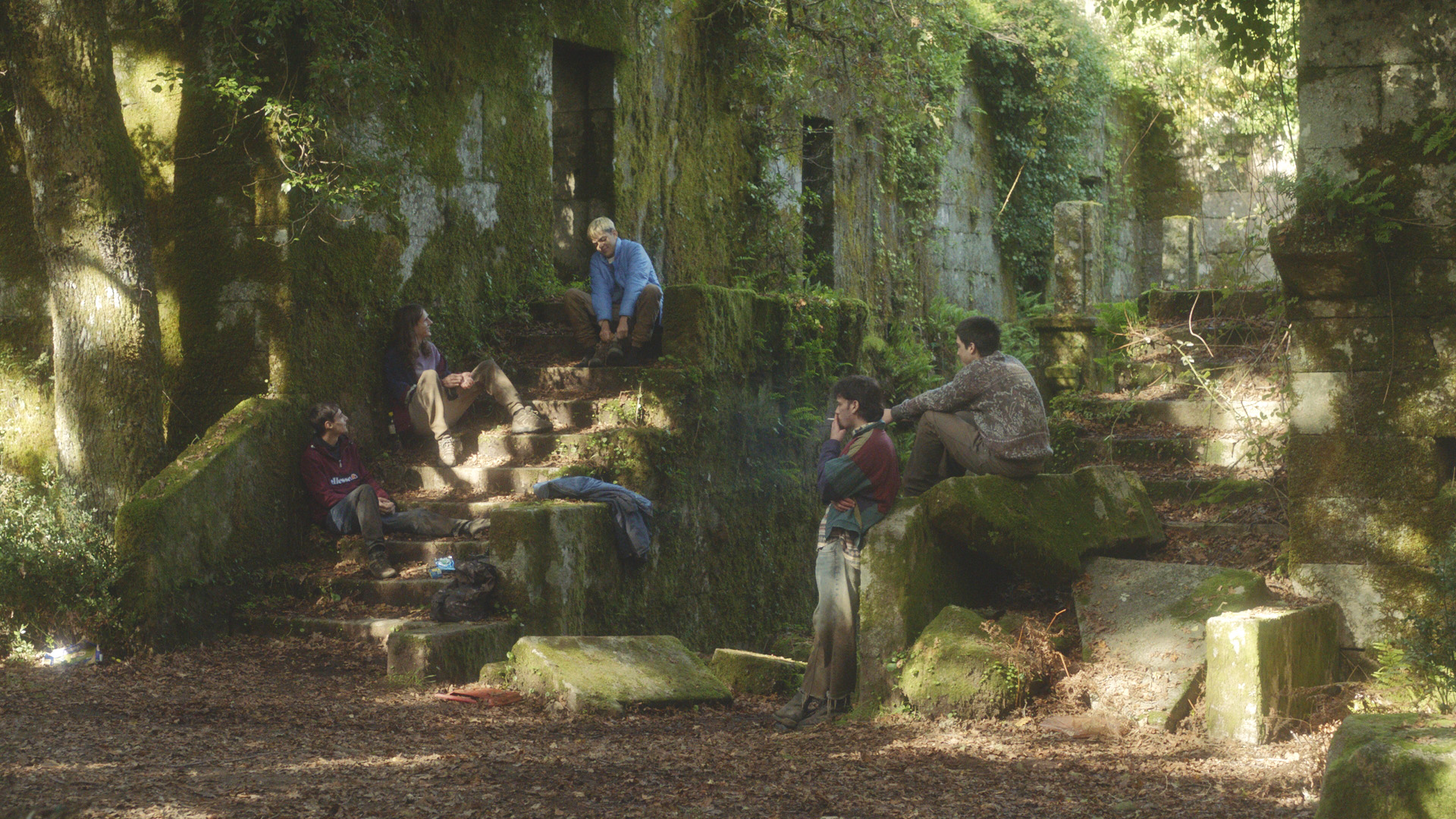
Visually striking and carefully crafted, the film has a very special aesthetic that explores male intimacy. Its producer, Carlos Pardo Ros, participated in the Rotterdam Lab 2023 and Darkroom 2025, and this year the film premiered at Giornate degli Autori during the Venice Film Festival to widespread critical acclaim. According to the International Film Society‘s five-star review ”with a distinct directorial hand and the bravery to let scenes breathe and develop their own rhythm, this film is as close to a masterpiece as one can get.”
“When you shoot a film, you only exist in the suspended moment of that film, because cinema allows you to stop time.”
Time and space feel suspended in the film’s atmosphere. Its protagonists, a group of Portuguese friends, cross the border into Spain to visit ancient thermal baths in search of rest and relaxation. They joke with each other while wading through swamps, recounting past tactical glories. As night falls and the steam begins to rise, the landscape is transformed.
There is something mysterious about these thermal waters, having appeared after a long time spent under the water of a reservoir. The baths influence the mood of the men, giving them the courage to say things they have never told anyone. As day turns to night, they confess their feelings and their fears of losing their best friend forever.
The film took six years to complete, shaped by a profound sense of time and shared experience, explains Carlos. During the initial location scouting, Carlos and Gabriel Azorín, the director, and producer Maria Antón Cabot visited the place where they would later shoot, on Carlos’ birthday, and felt that “there was something there”.
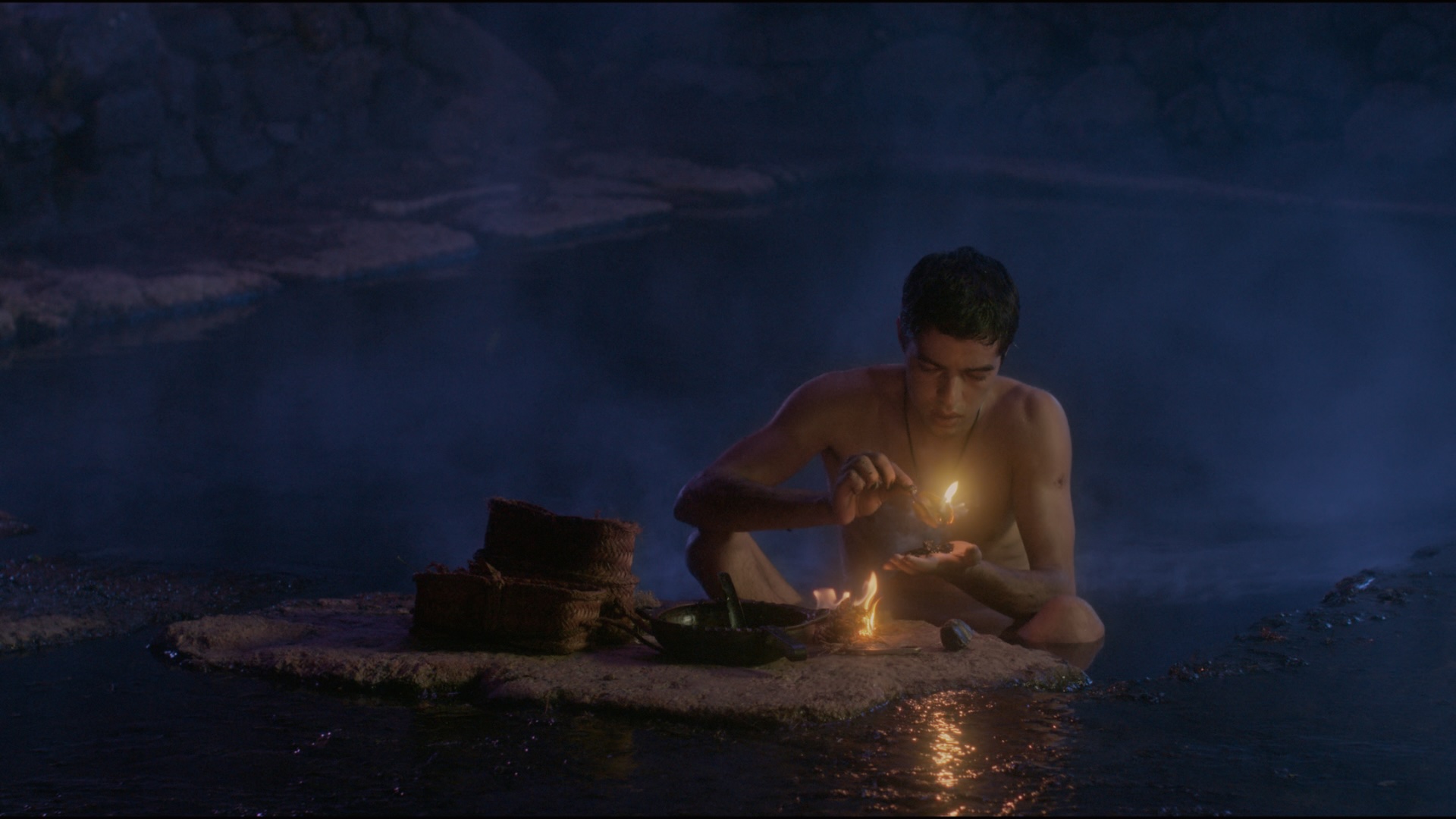
Next came a number of challenges: the complexity of casting, which combined non-professional and professional actors, and the task of bringing a dead language, Latin, back to life.
“Darkroom helped us understand how to position the film.”
“When you shoot a film, you only exist in the suspended moment of that film, because cinema allows you to stop time.” Along the way, Carlos attended Rotterdam Lab and the film was presented at Darkroom, both accompanying the film’s development and offering valuable insights on navigating international distribution and festival strategy. “I have felt that IFFR has accompanied the film from its development to its journey through festivals,” he says.
When asked about the importance of collective spaces, he points out how programms such as Darkroom embody this spirit within IFFR. Designed for works still in progress formerly presented at CineMart, supported by the Hubert Bals Fund or produced by a former Rotterdam Lab participant, Darkroom invites filmmakers, producers and industry colleagues to gather around films nearing competition, share feedback and collectively gather support for completion funding, festival platforming and world sales of their films.
As it was the team’s first international co-production, combining public and private funding, the support and expertise at IFFR were particularly important: “The comments at Darkroom helped us understand how to position the film, find collaborators and, ultimately, expand our network of contacts with whom, even if we haven’t worked on this film, we could work in the future”.
“It’s simply our main idea about cinema: that it’s a collective art form.”
For Carlos, these types of spaces go beyond presenting or selling projects: they foster collaboration and collectivity. “Our understanding of cinema is collective, with a less hierarchical approach. That’s why we look for spaces that correspond to our philosophy, and IFFR is one of them. It’s simply our main idea about cinema: that it’s a collective art form.” He explains that they never sign their films with “A film by”, but rather “A film directed by”, because the director is just one member of a much larger collective.
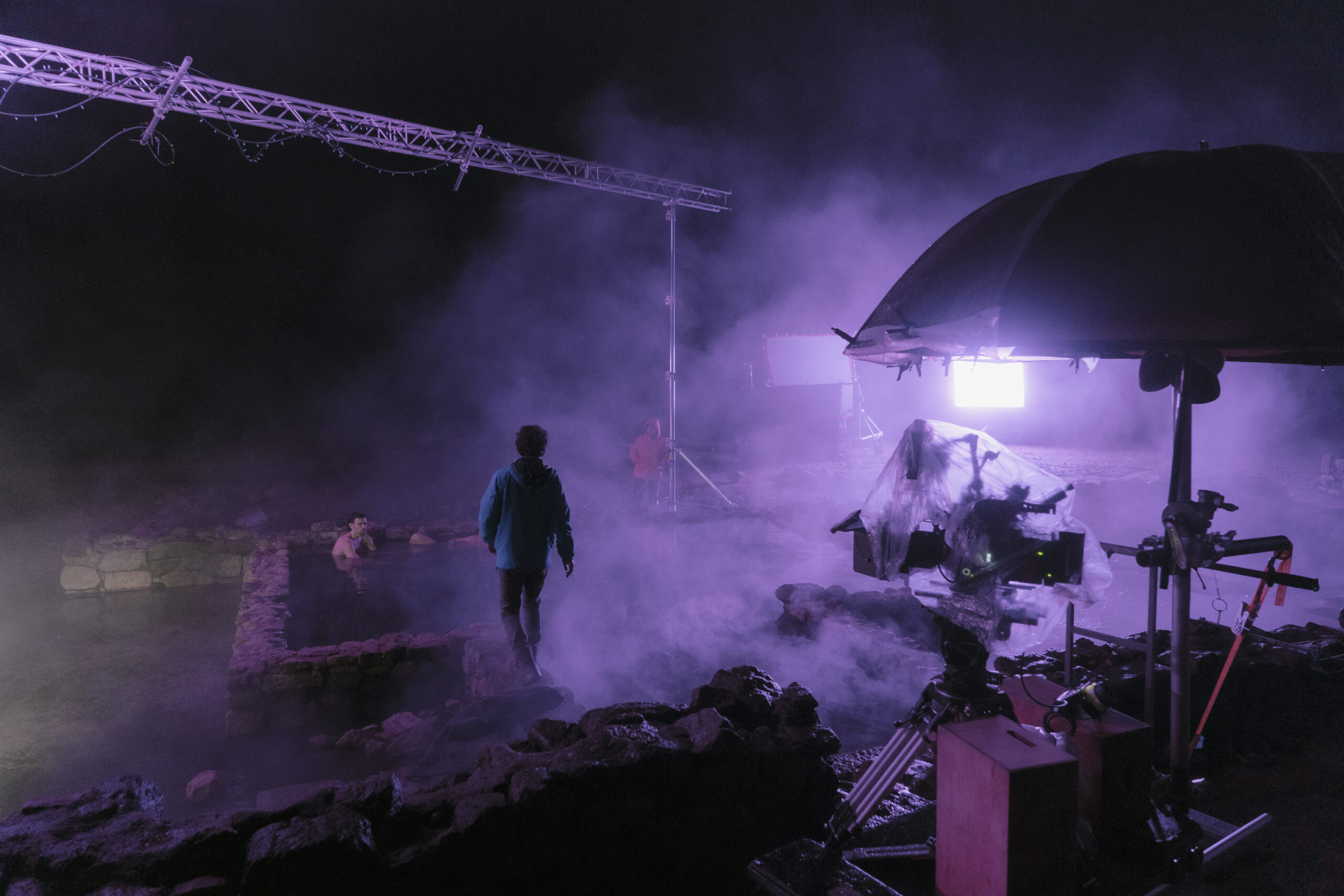
“Friendships are forged; you talk about cinema.”
The community created by Rotterdam Lab leaves a deep impression. This training workshop for emerging producers where collaboration is essential has the aim of developing and expanding their network, while building long-lasting relationships. “I’ve been able to keep in touch with some of the people who participated, reconnecting in other markets. Bonds are formed with producers and all kinds of professionals. Friendships are forged; you talk about cinema.” says Carlos, who was nominated to participate by ECAM Forum.
For him, this sense of belonging, where connections transform into friendships and collaborations between collectives, is as valuable as any market access or visibility a festival can offer. “It’s a joy to see the commitment IFFR shows to the producers and the films that have been supported.” After the festival, he explains, a lasting network of support and collaboration begins to form.
“Almost everything you do in that film will be the first time you’ve done it.”
Thinking about those participating in the Rotterdam Lab or Darkroom for the first time, Carlos offers clear advice: “Keep an open mind, talk to everyone, and don’t limit yourself to those who share your vision of cinema – also connect with those who may see it in a very different way. That way, you’ll better understand your own position in the world and avoid common mistakes in the industry that arise from believing that there is only one way to make films. For us, any film is, in itself, experimental. Because almost everything you do in that film will be the first time you’ve done it, and the production needs to stay alive.”
One of the big questions was how it would resonate with young audiences. Now, Carlos feels that the film is finding its place among them. It tackles a subject that has been little explored on screen: male friendship and emotional intimacy. “In the end, we filmed what we were experiencing, and that’s the beauty of making films with friends like Gabriel.”
By Paula Estany Hachuel
A list with articles
-
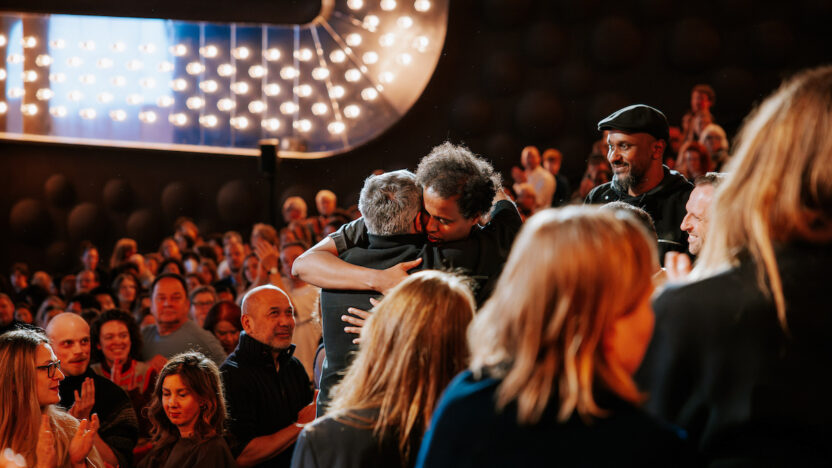
IFFR closes its 55th edition celebrating an uptick in new, younger audiences and industry attendees
Published on:-
News
-
Press release
-
-
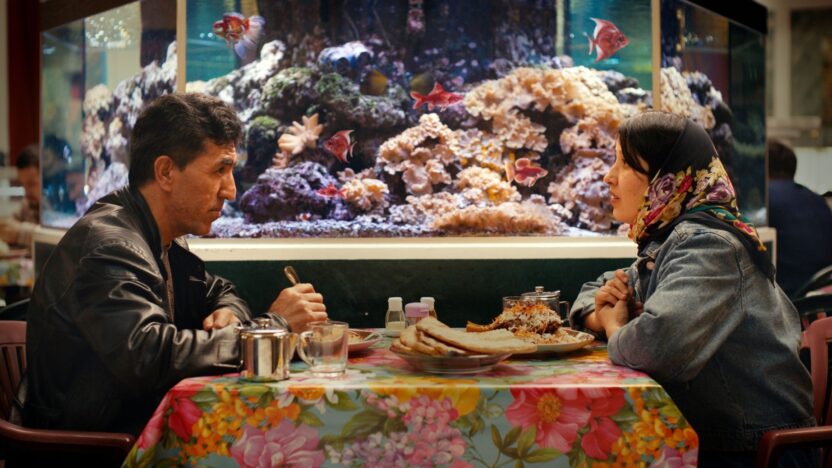
Shahrbanoo Sadat’s No Good Men opens Berlinale 2026 among strong HBF and CineMart lineup
Published on:-
CineMart
-
Hubert Bals Fund
-
IFFR Pro
-
-

